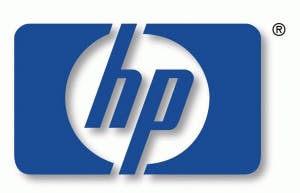Personal computers have been a touchstone of the business and personal world for the majority of my life. Born in 1967, I’ve seen them grow up from some odd thing that only colleges had to things my eight-year-old plays and does homework on. The explosion of the personal computer is the biggest consumer electronics story of the last 30-odd years.

But not anymore. As any observer can note, PCs – useful as they are – are being passed up by tablet computers and other mobile devices. There’s a real feeling that the desktop PC is on its way out the door and that even laptops and notebooks are headed for the ashbin of history. It’s a strange sight to someone raised on PCs in the classroom and DOS for Dummies.
Still, not everyone is taking it lying down. Fujifilm, along with several other firms – makers of PCs and software for PCs – are trying to take steps to bring the ease of use that tablets own such as touchscreen technology and other innovations to the next wave of lightweight PCs. It’ll be an interesting ride if they can pull it off.
To do so, they’ll have to compete with Apple Inc. (NASDAQ:AAPL) and Google Inc (NASDAQ:GOOG), of course. Both of these companies have a strong hold on the tablet market. They don’t own all of it, but between the two they own a good chunk of it. Apple, as you should know, also makes personal computers but has been shifting itself over the last 10 years towards other personal electronics and doing fairly well at it. Google isn’t as committed to the hardware as Apple, but its Android operating system runs a lot of devices. These two will be difficult to compete against.
Microsoft Corporation (NASDAQ:MSFT)
Microsoft is – apparently – willing to give it a try. In addition to competing directly in the tablet market with the Surface (which I think very highly of) the company made sure that its newest operating system, Windows 8, was built around the concept of touchscreen computing. Microsoft is poised to compete, as it always is, for the business dollar that buys computers. Both the new Windows 8 and the Surface are being sold as primary business devices and that’s a real hole in the wall that Apple and Google have built that can be exploited. If Microsoft can make sure to keep the enterprise-level buyer invested in Windows PCs through the expansion of a tablet-like interface – and tablets – there’s reason to believe that it will do well in the future.
Dell Inc. (NASDAQ:DELL)
Seriously, Dell Inc. (NASDAQ:DELL) is a real headache for the investor. There are troubles all around for the PC maker. Does it go private, does it stay public but offer a sop to large investors? What? It’s a confusing situation.
What isn’t confusing is that the firm is said to have made moves to lock up production on new touchscreen technology that allows its products to not only provide the same experience as existing touchscreens but to enhance it with stretching and bendable screens that are harder to break and easier to work with. That could be a bit of a game changer for the firm from Texas and also might explain why so many big players are spending so much time arguing over ownership, control and direction for a firm most had written off.
Hewlett-Packard Company (NYSE:HPQ)
Another firm that a lot of people had written off, Hewlett-Packard Company (NYSE:HPQ) is fighting the PC wars to the bitter end. The firm famously has Meg Whitman – formerly of eBay and a run at the California Governor’s Office – as CEO and President. It’s been a rough ride for HP, but the last several months have been good. Since things stabilized over there the shares have climbed almost 80% since mid-November. If Hewlett-Packard Company (NYSE:HPQ) can gain some ground using newer, tablet-like screen on its next generation of business PCs there’s real room for a renaissance by the sometimes stodgy technology firm.
What we’re seeing here is the merging of the tablet culture – this thing that’s grown up in just a few short years that sees everyone and their brother using them to not talk to people at coffee shops – and the business-oriented PC culture. People want the convenience of tablets, sure. But they also want the power that PCs bring to the table and that’s something tablets have yet to be able to provide. Most tablet manufacturers, by focusing on the consumer and entertainment markets, have left a market space that can be moved into by these larger and more established business PC firms. I think they’re going to be glad to do so.
The article Can the PC Be Saved? originally appeared on Fool.com and is written by Nate Wooley.
Copyright © 1995 – 2013 The Motley Fool, LLC. All rights reserved. The Motley Fool has a disclosure policy.
